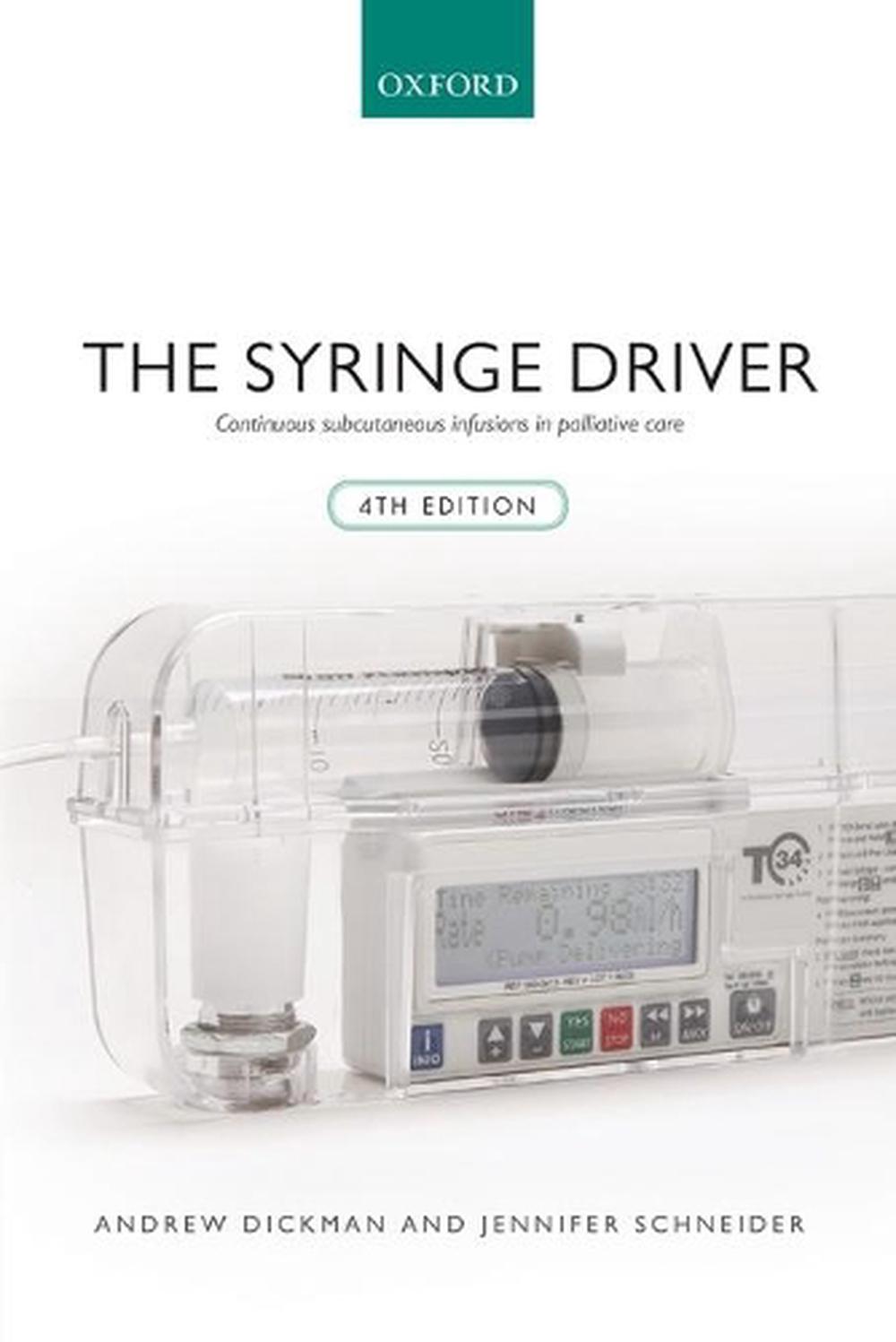
The Syringe Driver
continuous subcutaneous infusions in palliative care
$64.98
- Paperback
610 pages
- Release Date
22 September 2016
Summary
The Syringe Driver: A Guide to Continuous Subcutaneous Infusion
The syringe driver offers a straightforward and economical solution for continuous subcutaneous infusion (CSCI). CSCI ensures the safe and effective delivery of medication, especially crucial for patients unable to take oral medication, maintaining crucial symptom control.
This edition presents a thorough revision, featuring updated treatment options and an extensive compilation of compatibility data, reflecting…
Book Details
| ISBN-13: | 9780198733720 |
|---|---|
| ISBN-10: | 0198733720 |
| Author: | Andrew Dickman, Jennifer Schneider |
| Publisher: | Oxford University Press |
| Imprint: | Oxford University Press |
| Format: | Paperback |
| Number of Pages: | 610 |
| Edition: | 4th |
| Release Date: | 22 September 2016 |
| Weight: | 966g |
| Dimensions: | 233mm x 155mm x 34mm |
What They're Saying
Critics Review
Review from previous edition Review from previous editionThis book is a valuable resource providing a wealth of information about the use of syringe drivers and CSCIs in palliative care and should be readily available wherever syringe drivers are used. One can only imagine the trouble experienced by the authors in researching, collating and presenting all the data, but I know the second edition will be even better.'IAHPC WebsiteThe straightforward comprehensive style and in-depth coverage of the subject should, along with its relatively low cost, ensure that this book will soon be found in nearly all palliative care units.‘Progress in Palliative CareA welcome resource... This book will be an excellent source of information for palliative care practitioners and should be readily available as a valuable reference source.'Palliative MedicineI would highly recommend it as a resource handbook for any service where syringe drivers are used for symptom control.‘Centre for Palliative Care Research and EducationWhat...are the benefits of 'upgrading' to this new edition...[i]s it worth the investment? Will it make a difference to your practice? The answer to both these questions is undoubtedly, yes. The second edition is a 'must have.' I cannot recommend this book highly enough. If using or advising on CSCIs in clincal practice, having the first edition of The Syringe Driver is not good enough. The text itself is essential, but only the newest edition willdo.'European Journal of Cancer Care, Vol 16This book is well written and easy to navigate. It is a comprehensive resource in an area where professionals often lack confidence. The practical sections and referenced compatibility tables provide useful information on drug combinations that is sure to aid the decision-making process. A highly recommended, essential reference for any palliative care practitioner.‘European Journal for Palliative Care, May 2013
About The Author
Andrew Dickman
Andrew is the Consultant Pharmacist for Palliative Care at Blackpool Teaching Hospitals NHS Foundation Trust. He is also a project lead at the Marie Curie Palliative Care Institute, University of Liverpool and was appointed Honorary Lecturer at the Graduate School of Pharmaceutical Sciences, Osaka University in 2010. His job involves clinical work, research and education and he is also an Independent Prescriber. Andrew is the author of several books, including Drugs in Palliative Care, The Syringe Driver and Chronic Pain, part of the Oxford Pain Management Library. He is also a co-author of Drugs in Cancer. He has contributed chapters to several books, including the Care of the Dying, Wall and Melzacks Textbook of Pain and Palliative Medicine.
Returns
This item is eligible for free returns within 30 days of delivery. See our returns policy for further details.




